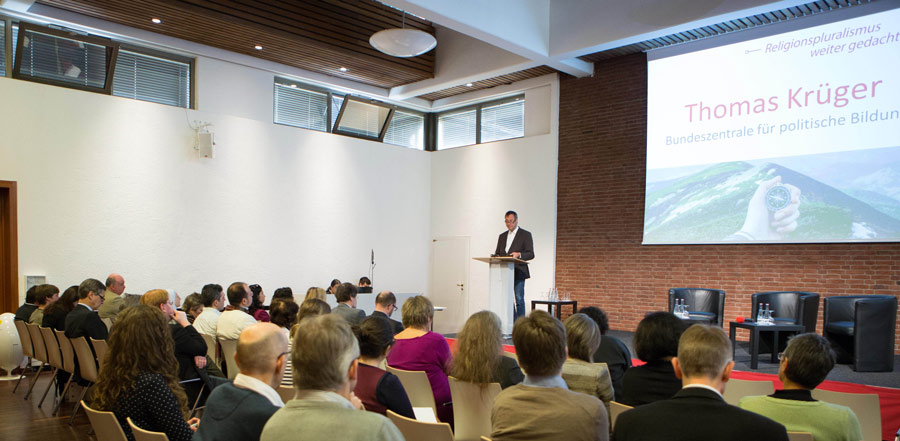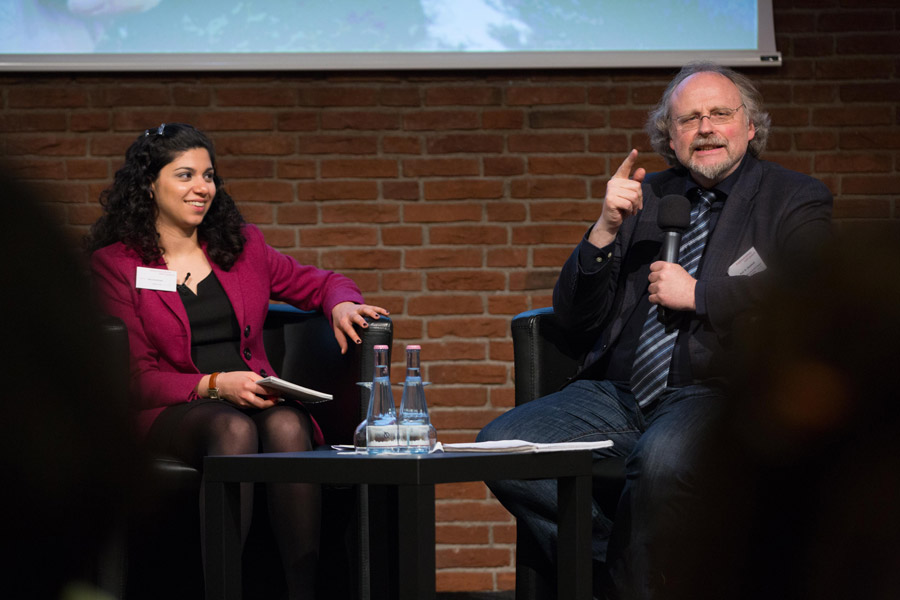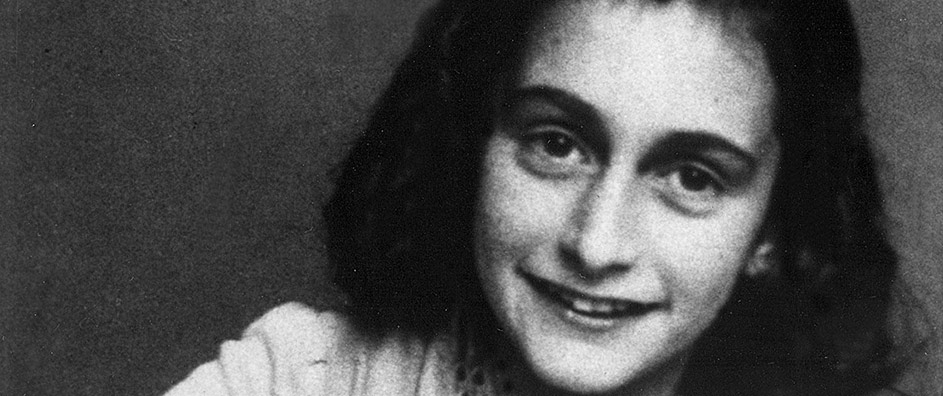Can religion serve as a constructive force in a pluralist society, and not a destructive one?
That question, asked in Germany recently, has spurred a series of important dialogues. The German Baha’i community organized forums on religion’s role in society, which led up to a conference titled “Further thoughts on Religious Pluralism,” co-sponsored with Germany’s Anne Frank Foundation. Founded to advance human rights education and promote dialogue among diverse groups, the Foundation honors the memory of Anne Frank, the Dutch Jewish girl who died in a German concentration camp in 1944, and whose diary is a classic of world literature.
Addressing the conference participants on behalf of the Baha’i community of Germany, Saba Detweiler echoed the themes of Anne Frank’s diary when she said “bringing people together for peace is at the heart of every religion. This is a facet of true religion.”
Relationships in society between various groups and even between neighbors are too often superficial, Detweiler explained. Instead, society needs a radical reconceptualization of human relations in which people see themselves as fundamentally part of one human family—and regard each other with respect, compassion, and understanding.

Some 60 participants explored the role of religion in society in light of the questions migration and integration have raised in Europe in recent years.
At the heart of the conference: the idea that religion plays a central role in the lives of the majority of the human race, so its place in society must be examined deeply and better understood.
This message goes far beyond a simple call for religion to be regarded as a constructive force in society. It also presents a serious challenge: if religion is to contribute to social harmony and greater bonds of friendship between people, religious leadership and religious communities need to reflect profoundly on those aspects of belief and practice that can create divisions and foster prejudice.
At the same time, if religion’s role becomes an increasingly positive force for harmony in society, social institutions will need to reshape their relationship with religion and let go of many of the harmful assumptions that leave little to no room for religion to play a part in the public sphere.
A number of other important themes were discussed over the course of the day. For instance, Daniel Bax, Editor for the German daily newspaper “Tageszeitung, Die Taz” spoke about the importance of dialogue dispelling perceived clashes in identity and belief. “No one will disagree that religion has an influence on culture,” Bax said. “Nowadays, however, this notion of influence is misused. Culture has become falsely conceptualized as something that is static and limited to certain characteristics.”
Mr. Bax challenged this view of culture and its relationship to identity. People, he argued, have many different dimensions to their identity. “These perceived clashes of different opinions, cultures, etc., have to be teased apart through dialogue in order to come to an understanding of how we in our diversity can live together in harmony. People are not only defined by their religious beliefs but have many other characteristics, qualities, and talents that can contribute to the common good. The concept of ‘the other’ has to be challenged. It cannot be simply that a person becomes ‘the other’ because he or she has a different religious belief.” Such a mindset, he explained, can lead to the conception that “others” are “enemies.”
Prof. Heiner Bielefeldt, former UN Special Rapporteur on Freedom of Religion or Belief and professor at Friedrich-Alexander University in Erlangen-Nürnberg, also addressed the conference.

Dana Kelishadi, a freelance journalist, and Prof. Heiner Bielefeldt, former UN Special Rapporteur on Freedom of Religion or Belief and professor at Friedrich-Alexander University in Erlangen-Nurnberg, exchange thoughts in a panel discussion.
“We need spaces to constantly remind ourselves of freedom of religion and belief and develop our understanding of it further. This is not done by dividing every one up into groups first and then trying to build bridges between them, but rather by creating open structures, where differences do appear, but because of a topic of common interest, they go away or enrich or at least can be resolved.”
Reflecting on the event, Ms. Detweiler commented: “With this conference, we hoped to open a space for societal actors from academia, media, civil society and religious communities, to engage in exploring the role of religion in the public sphere and its relationship to social harmony and progress in a diverse society.” The conference, she explained, represented one step forward in an ongoing dialogue that will need to keep building momentum in the coming months and years.
Looking ahead, the Baha’i community of Germany and the Anne Frank Foundation plan to continue their collaboration in advancing this important dialogue in their society, and in fostering the unity and goodwill the Baha’i teachings advocate:
The basis of the teaching of Baha’u’llah is the unity of mankind, and his greatest desire was that love and goodwill should live in the heart of men.
As He exhorted the people to do away with strife and discord, so I wish to explain to you the principal reason of the unrest among nations. The chief cause is the misrepresentation of religion by the religious leaders and teachers. They teach their followers to believe that their own form of religion is the only one pleasing to God, and that followers of any other persuasion are condemned by the All-Loving Father and deprived of His Mercy and Grace. Hence arise among the peoples, disapproval, contempt, disputes and hatred. If these religious prejudices could be swept away, the nations would soon enjoy peace and concord. – Abdu’l-Baha, Paris Talks, pp. 45-46.
















Comments
Sign in or create an account
Continue with Googleor